JournalismPakistan.com | Published November 29, 2013 | Arsalan Altaf
Join our WhatsApp channel
ISLAMABAD: How will we be consuming news 10 years down the line, and what shape the newspaper will take in 2024?
With these questions, Kamal Siddiqi, Editor The Express Tribune, opened the session ‘Pakistani Media in 2024’ at the National Media Conference, convened by Individualland Pakistan which concluded Thursday in Islamabad.
Senior journalist Ikram Hoti observed that the media has been an anti-democracy force in Pakistan and hasn’t exposed the mullah, military, and the political right, which he said have caused the most damage to this society. “If it goes on like this, in 2024 it will be called a terrorist media.”
Murtaza Solangi, under whom Radio Pakistan saw many new developments including an active social media presence, said the media influences the society and vice versa. “Today, there are more smart phones in Pakistan than PCs. Print is dwindling and tweet count is rising. The audience are active media consumers today and have their own pressure.”
The state media will either have to reform itself or it perishes, he warned.
Solangi said print’s shape might change but it will remain a source of in-depth coverage and analysis over the coming years.
“Future newspapers might not be on paper but will essentially provide the optimum tools for perspective building. Although future newspapers might have some sections of the breaking stories and updates but primarily they would provide depth and deeper analyses,” said Solangi, who himself has over 27,000 Twitter followers.
The chair, Kamal Siddiqi, said definitions of journalism and journalist are changing due to the social media and the emerging trend of citizen journalism. “Some on social media have more followers than many papers print copies. It’s a wake-up call for the so-called traditional journalists.”
Farieha Aziz, Director Bolo Bhi, dispelled the mainstream media’s impression of social media as a non-serious business. She said the traditional media is moving towards the social media. “Journalists should embrace it; it is here to stay.”
Farieha said investigative journalism is vanishing from the mainstream media but the online media is keeping it alive.
Nighat Dad, Executive Director Digital Rights Foundation, thought social media is facilitating the mainstream journalism today. She highlighted how the social media broke the Bin Laden raid story and how it compelled the TV screens to pick up the Shahzaib murder case.
“Not everything on social media is positive. Good cyber laws can check negativity on online platforms.”
Replying to a question on how to curb hate speech and other negative things on social media, Murtaza Solangi said bans and curbs are not the solution. “Where is the state on social media? To tackle disinformation on social networking sites, the state needs to come up with the right information using the same tools.”

June 11, 2025: Pakistan celebrated a narrow win over Bangladesh, but beneath the jubilation lies a deeper crisis—from sidelined veterans to a collapsing domestic structure—signaling an urgent need for cricket reform.
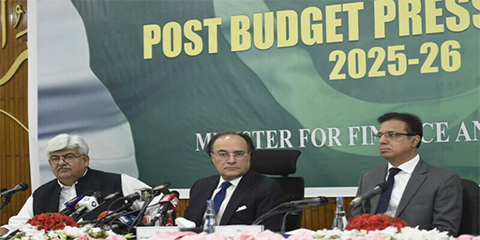
June 11, 2025: Journalists walked out of the post-budget press conference in Islamabad to protest the absence of a technical briefing and the government's dismissive behavior, calling it unacceptable and intolerable.
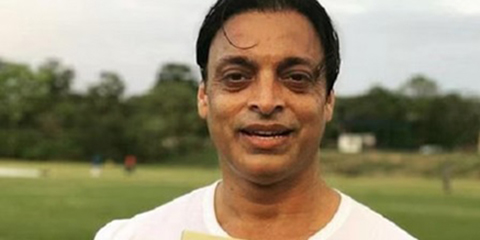
May 31, 2025: Dr. Nauman Niaz has issued a defamation notice to Shoaib Akhtar over derogatory remarks made during a recent broadcast, reigniting a longstanding media feud between the two prominent figures in Pakistan.

May 30, 2025: The Human Rights Commission of Pakistan has demanded the full repeal of PECA, citing its vague language, coercive powers, and threats to free speech and digital rights in Pakistan.
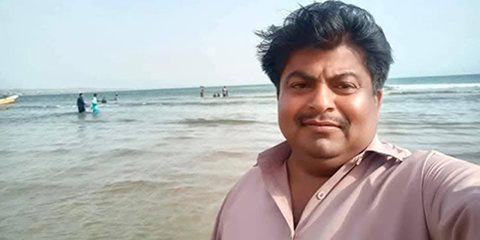
May 30, 2025: The Pakistan Federal Union of Journalists (PFUJ) has condemned the murder of journalist Syed Mohammed Shah in Jacobabad, calling for urgent justice and improved safety for media professionals in Sindh.

May 26, 2025: In Rawalpindi, police allegedly side with Jang Group to block 66 reinstated employees from resuming work despite court orders, drawing sharp criticism from unions and press freedom advocates.

May 25, 2025: PFUJ condemns the Jang Group's decision to dismiss over 80 employees in Rawalpindi, calling it an 'economic massacre.' The union warns of nationwide protests if workers are not reinstated.
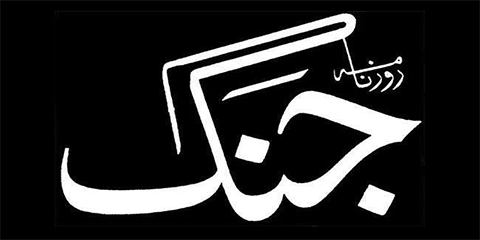
May 25, 2025: Daily Jang Rawalpindi has terminated over 80 employees, including female staff, despite multiple court rulings in their favor—raising concerns over labor rights violations and misuse of authority in Pakistani media.
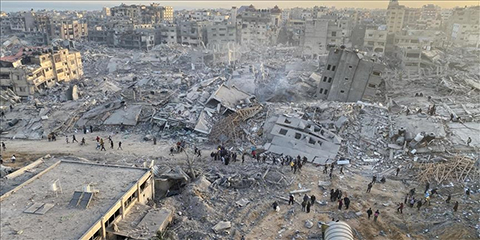
May 19, 2025 PJS reports 219 Palestinian journalists killed in Israeli attacks since October 7, with 30 women among the victims. Over 430 were injured and 685 family members were killed. Read more on the systematic targeting of media in Gaza.

May 15, 2025 Discover the legacy of Samiullah Khan, Pakistan’s legendary "Flying Horse," whose breathtaking speed and artistry redefined hockey. From Olympic glory to World Cup triumphs, his story is one of myth, movement, and magic.
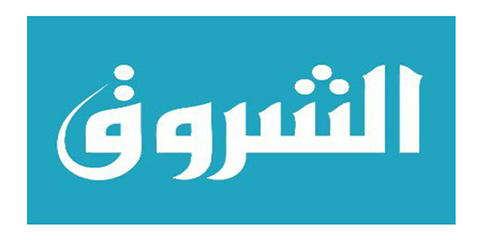
May 04, 2025 Algerian authorities suspend Echorouk News TV for 10 days after it used a racist slur against African migrants. ANIRA demands an apology, calling it a violation of human dignity.

May 04, 2025 NCHR and MMfD launch a journalism fellowship to train reporters on digital rights & gender inclusion in Pakistan. Supported by UNESCO, this initiative aims to bridge the gender digital divide. Apply by May 15, 2025!
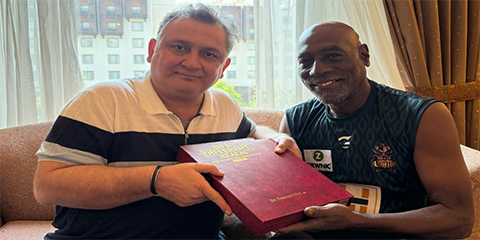
April 23, 2025 Discover Dr. Nauman Niaz’s In A Different Realm: Story of Quadruple & Triple Centuries 1876–2025, a profound exploration of cricket's most monumental innings, blending historical analysis with poetic narrative.